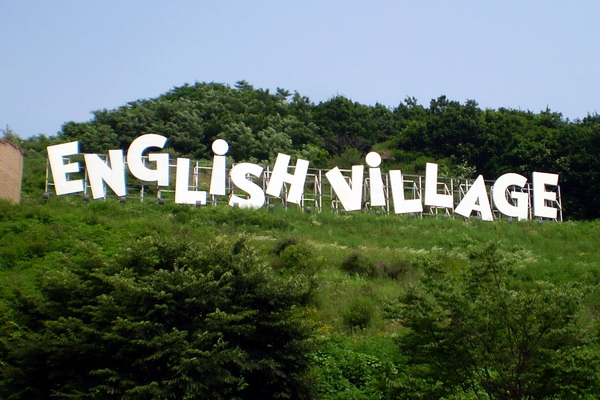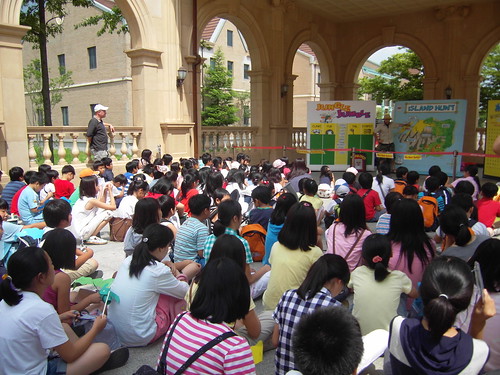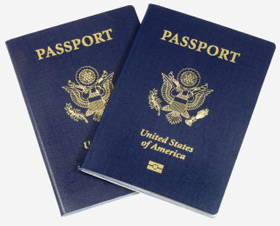
Teaching at an English Village (part II)
Last post we took a look at what is an ‘English village’ and how does it work. This post I will talk about how to find a job an an English village and what benefits do they offer.
As I said in my earlier post, these English villages aim to provide children with a unique English learning environment. All classrooms are created to allow students to experience English language and culture of English-speaking countries through role playing and real life scenarios.
How to find a job at an English village?

There are plethora of websites offering ESL jobs in Korea. You can search and find a good position easily. Many foreign teachers prefer to use recruiters which is not a bad idea especially if this is your first time teaching abroad. Another good idea is to try and get in touch with the native teachers currently working at the location so you can get a more accurate picture and reliable information. Yet another way is to apply and get this job by contacting the English Village directly. All villages have a webpage and they are relatively easy to find.
Qualifications and Eligibility:
These qualifications are similar to what is required to work at public schools and hagwons in Korea.
- Must hold an undergraduate degree (equivalent to the American bachelor’s degree) or higher in any discipline.
-
Only citizens from the countries are qualified to apply :USA, UK, Ireland, New Zealand, Australia, Canada, and South Africa.
Preferences :
These are also pretty much the same like working for public schools or hagwons.
- ESL teaching experience
- TESOL /TEFL/CELTA or teaching certifications or a degree in Education.
However, many English villages prefer candidates to have skills in music, arts or sports which is not required if you want to work for public schools or hagwons.
Additional prerequisites:
- No criminal record.
- No use of illegal drugs. No smoking / No Drinking at the English Village.
- Must not test positive for HIV.
Necessary documents:

For immigration purposes you will need:
- Sealed copies of your university transcripts
- An apostilled copy of your bachelor’s degree
- An apostilled national level criminal record check
- Self-health statement
Additionally, you may need:
- Proof of teaching experience (necessary for higher pay)
- Copies of TESOL and teaching certificates
- Letters of recommendation
You will also need passport pictures for various purposes. I recommend get a bunch of them since you will need them to apply for your alien registration card once you arrive in Korea.
Salary and contract period:
Contact period can be 12 months or 6 months. Your salary each month ranges around 2.1~2.5 million won, depending on the level of education and teaching experience you have.
Work hours:
- Working week in most villages is usually 40 hours a week. Teachers have to teach a maximum of 30 hours per week.Teachers work eight hour per day (excluding lunch period from 12:00 – 1:00 p.m.) five days a week.Program and activity hours are also scheduled to fulfill the 40-hour working week. Work hours also include 11/2 hours of preparation time. Most English villages usually have 2 different working shifts. Day shift starts from 9 a.m. and finishes 6 p.m. and Night shift starts 12 p.m. and finishes 9 p.m.
- Most villages have an unpaid Orientation Period usually 3 – 5 days after your arrival in Korea.
- Overtime:
- Teachers may be required to work overtime in addition to normal work hours/days. Compensation of these overtime hours apparently depends on the discretion of the employer (from what I have found out).These overtime hours may be compensated with compensatory time off or so called added vacation days or a monetary compensation. This is unlike hagwons and public schools where overtime rate is usually set at 20,000 won per teaching hour. The overtime is usually added to the monthly pay check.
- Vacation days:
- Most
villages offer 10 working days paid vacation. Sick leaves are provided but they maybe paid or unpaid depending on your workplace. Also, scheduling of vacation days is at the discretion of the employer so make sure you check these details out before signing a contract.
- Housing:

- The kind of housing you might end up with depends on where you work. Some villages provide a semi- furnished single room whereas others may provide a fully-furnished studio apartment. Furnishings also vary depending on where you work. Each room maybe equipped with a TV, a microwave, an electric range, a vacuum cleaner, a phone, a bed, a bathroom , a refrigerator, a washing machine etc. however there are other villages that have shared kitchen and bathrooms for teachers. Paying for the utilities is similar. Many villages offer dormitories for the teachers with shared facilities and the teachers do not have to pay utilities. Yet there are other villages where teachers have to pay for utilities which is automatically deducted from the monthly salary. If you have a family, a 2-room apartment can be arranged.
- Other benefits:
- Most villages provide similar additional benefits that public schools and hagwons offer.
- Round-trip airfare for 12-month contracts, or one-way airfare for 6-month contracts.
- Severance pay for successfully finishing a 12-month contract.
- Free wireless internet.
- Employment medical insurance (2.4% of your salary will be deducted each month).
- Pension contributions.
- Sick pay.
- Visa and contract assistance.
- Lunch is provided on weekdays in the cafeteria.
- English villages are a good option For those looking for a challenge and a change of pace. As a teacher it will give you a chance of having meaningful conversations and innovative lessons in the classroom. It can be a fun and gratifying experience.
- Here is a list of some currently running English villages in South Korea:
Gyeonggi English Village — Paju Camp: http://www.english-village.or.kr (In Korean and English)
Anyang English Village: http://www.ayev.co.kr/(In Korean Only)
Icheon Global Peace Village: http://gpv.unesco.or.kr/(In Korean and English)
Suwon Global Village: http://www.swgv.or.kr/(In Korean Only)
Gwacheon English Town: http://www.gcyc.go.kr/englishtown/(In Korean Only)
Daegu Gyeongbuk English Village: http://www.dgev.ac.kr/(In Korean and English)
Yeongcheon English Town: http://www.y1000-e.go.kr/yet/(In Korean Only)
Yeongju English Center: http://www.yec.es.kr/(In Korean Only)
Changnyeong English Village: http://www.cev.co.kr/(In Korean Only)
Geoje English Village: www.gev.co.kr/(In Korean Only)
Mokpo English Village: www.mpev.go.kr(In Korean Only)
Jangheung Foreign Language Center: http://www.jnjhe.go.kr/jhtown/(In Korean Only)
Yeosu Foreign Language Center: http://www.yset.co.kr/(In Korean Only)
Jeju Experience English Village: http://www.jejuevillage.com/(In Korean Only)
Seoul English Village — Gwanak Camp: http://gwanak.sev.go.kr/(In Korean Only)
Seoul English Village — Suyu Camp: http://suyu.sev.go.kr/(In Korean Only)
Seoul English Village — Pungnap Camp: http://pungnap.sev.go.kr/(In Korean and English)
Nowon English Village: http://nev.nowon.kr/(In Korean Only)
GJ International English Village: http://www.gjvillage.co.kr/(In Korean Only)
Incheon English Village: http://www.icev.go.kr/(In Korean Only)
Busan Global Village: https://www.bgv.co.kr/(In Korean Only)
